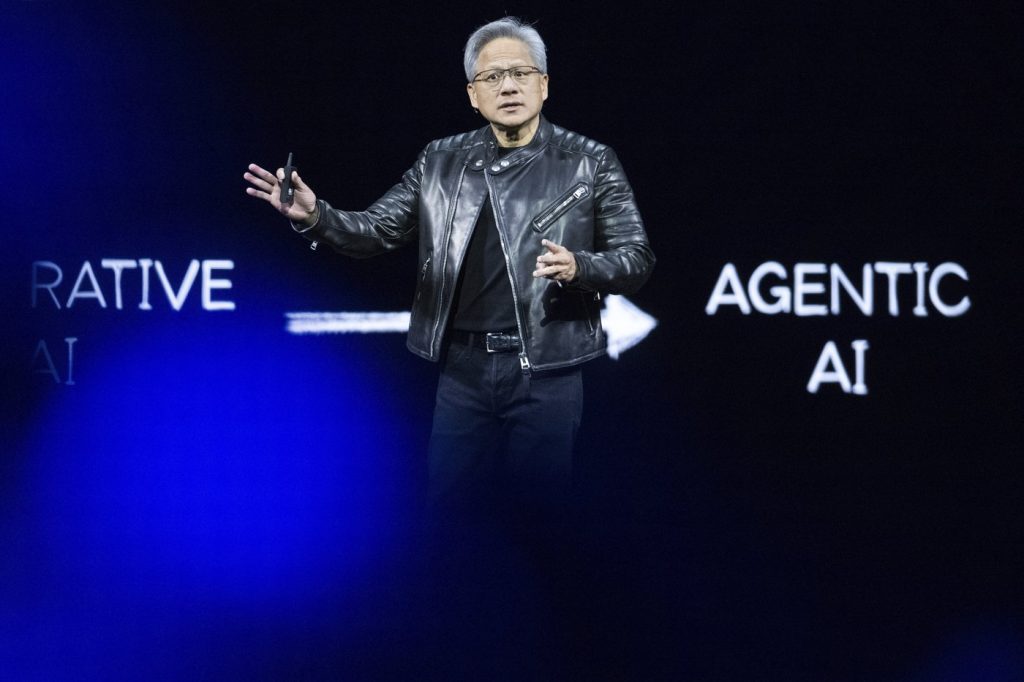LOS ANGELES (AP) - Nvidia announced on a recent Monday that it will produce its artificial intelligence supercomputers in the United States for the first time. This move marks a significant shift in the tech industry as the company has committed to expanding its manufacturing capabilities within the country.
The tech giant revealed that it has secured over one million square feet of manufacturing space to build and test its specialized Blackwell chips in Arizona while simultaneously constructing AI supercomputers in Texas. Nvidia's investment is projected to generate up to $500 billion worth of AI infrastructure over the next four years, reflecting the immense demand for AI technology.
"The engines of the world’s AI infrastructure are being built in the United States for the first time," stated Nvidia founder Jensen Huang. He emphasized that establishing American manufacturing capabilities would allow the company to better meet the growing demand for AI chips and supercomputers, enhance supply chain stability, and improve overall resiliency.
Nvidia’s announcement coincides with ongoing discussions regarding tariffs as the Trump administration addresses electronics tariff exemptions. These exemptions apply to products such as smartphones and laptops and are currently seen as temporary until a new tariff framework regarding the semiconductor industry is finalized. U.S. Commerce Secretary Howard Lutnick noted on a recent Sunday broadcast that while certain electronics are temporarily exempt, they will still be subject to semiconductor tariffs due to be introduced in the upcoming months.
According to Nvidia’s report, production of the Blackwell chips has already begun at the facilities operated by Taiwan Semiconductor Manufacturing Company in Phoenix. Additionally, the Santa Clara, California-based firm is collaborating with Foxconn and Wistron to set up its supercomputer manufacturing plants in Houston and Dallas, Texas. Nvidia’s AI supercomputers are designed to serve as the core components of AI factories—unique data centers specifically created for processing artificial intelligence workloads.
Furthermore, the company has outlined expectations that manufacturing in the United States will lead to the creation of hundreds of thousands of jobs and contribute trillions of dollars to the economy in the decades to come. Mass production is anticipated to ramp up within the next 12 to 15 months, with Nvidia planning to partner with Taiwan-based SPIL and Amkor for packaging and testing operations in Arizona.
In a separate statement, the White House labeled Nvidia's initiative as "the Trump Effect in action.” This designation aligns with President Trump's prioritization of U.S.-based chip manufacturing, which he envisions as a critical aspect of revitalizing American industry and securing new investments within the technology sector.
Earlier this year, Trump announced a collaborative venture set to invest up to $500 billion focused on infrastructure related to artificial intelligence. This initiative involves a partnership between OpenAI, Oracle, and SoftBank, named Stargate, tasked with developing data centers and the necessary power sources to advance AI technology in Texas. The initial capital investment for this venture is anticipated to be around $100 billion, with potential growth to five times that amount.
As Nvidia pivots towards domestic production for AI technologies, the implications for the tech landscape, employment, and economic growth could be substantial, emphasizing the administration's focus on bolstering American manufacturing capabilities in the high-tech sector.










